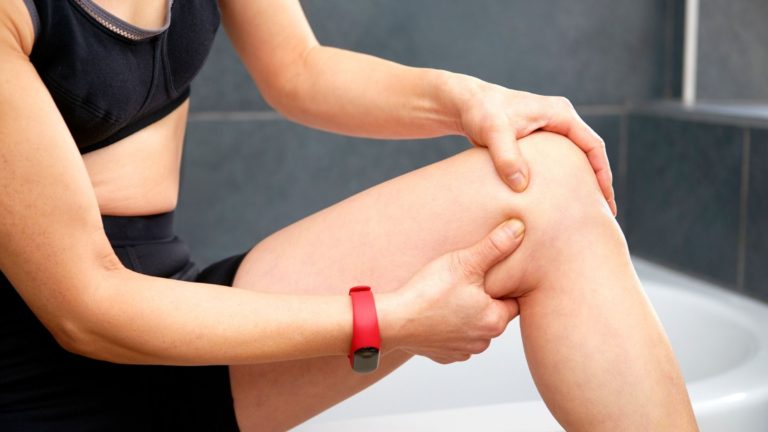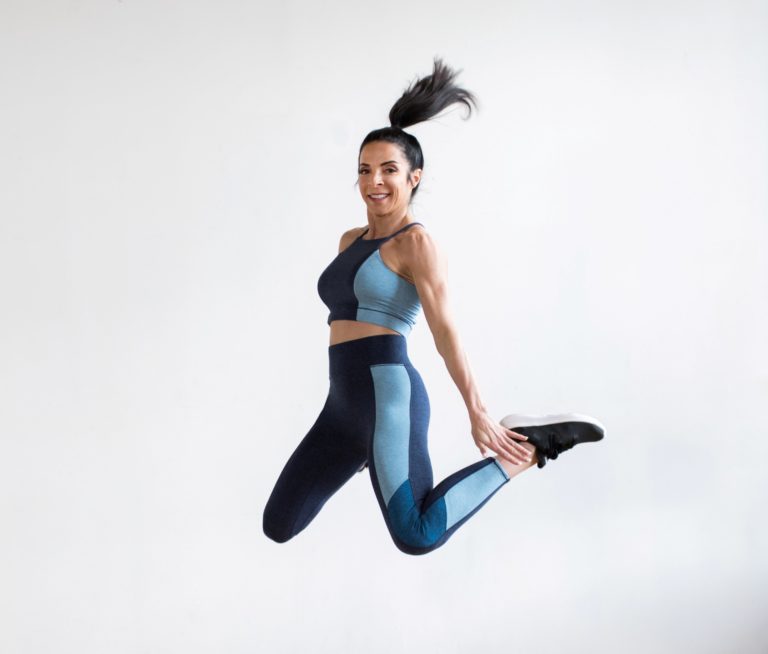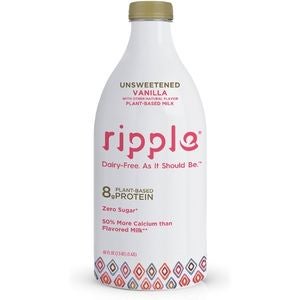
5 Effective Workout Recovery Drinks — That Aren’t Smoothies
When you exercise intensely, your energy stores in the form of muscle glycogen become depleted and your muscle fibers suffer some degree of damage, both of which place you in a vulnerable position. Dialing in your recovery nutrition is nearly as important as your training when it comes to powering your fitness efforts. So what athlete wouldn’t appreciate a drink that can give them an edge on their recovery?
This is precisely why athletes often turn to smoothies and protein shakes to help bounce back quicker. The combo of carbs and protein can get the job done quickly. But sometimes the thought of downing another blender drink or chalky protein shake is too much to stomach. Thankfully, there are several other drink options out there with plenty of recovery science to back them up.
Bow down, Gatorade, these are the elixirs worth taking a sip after your body reserves have taken a dip.
Section divider
1. Pea Milk
It used to be that soy was the only dairy-free milk that contained any reasonable amounts of protein to help spur on post-training muscle recovery. Thankfully, pea milk has hit the market with protein numbers on par with the moo variety.
Most often made with pea protein sourced from yellow split peas, pea milk can contain up to 8 grams per 8-ounce serving. (Dairy milk has 8 grams, too, while almond milk typically has a mere 1 gram.) It’s also worth noting that the quality of protein from peas is higher than many other plants and supplies a good amount of branched-chain amino acids, the amino acids that are especially important in instigating muscle protein synthesis in response to training. This is why pea protein powders have become a popular plant-based supplement.
For the most part, the texture is surprisingly creamy and “luscious.” So it doesn’t taste watered down.
While I’m quick to recommend sipping unsweetened non-dairy milk most often, the sugar added to chocolate and other flavored varieties can help with recovery after a tough workout. The combo of protein and carbs will increase the uptake of amino acids and glucose into the muscle cells to improve muscular repair and replenishment of glycogen.
Several brands are also enriched with a few important nutrients including calcium, vitamin D and vitamin A. And it is one of the most hypo-allergenic options on the market.
One to buy and try: Ripple Vanilla

Section divider
2. Non-alcoholic Beer
Finishing a crazy workout or long run then crushing a six-pack won’t do your training and desired fitness gains any favors. Really, any amount of alcohol is performance dead end. Alcohol is pro-inflammatory, which can limit proper recovery and the benefits you are trying to glean from exercising. And some research also shows that alcohol can impact your rate of post-workout muscle protein synthesis—the process by which muscles grow and repair after exercise and a notable marker of recovery. This is why if you are looking for a post-sweat session celebratory drink then you should consider saying cheers, instead, to near beer.
A systematic review on beer consumption related to exercise published in the International Journal of Sport Nutrition and Exercise Metabolism found that non-alcoholic beer can be part of an effective post-workout hydration plan. And you get this minus the deleterious effects of ethanol present in regular beer and the need to find a designated driver. Without the fear of a buzz, you could even partake before a workout as research suggests drinking booze-free beer can help maintain better electrolyte balance during exercise. Regular beer, on the other hand, had a detrimental impact on electrolyte levels. Plus, you avoid the problem of alcohol hindering proper metabolism, resulting in a greater chance of storing more body fat.
Just remember that non-alcoholic beer contains zero protein so is not a one-and-done recovery drink.
Formerly a punch line and relegated to a meme, the non-alcoholic beer market has also undergone a dramatic revitalization of late with improved brewing technology including reverse osmosis and vacuum distillation to bid farewell to the alcohol but not the taste. Ambers, IPAs and stouts that look like beer, smell like beer, and—of course, most important—tastes like beer. Say cheers to that.
One to buy and try: Rightside Brewing Citrus Wheat
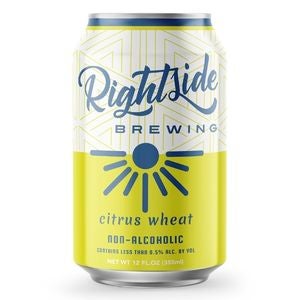
RELATED: Non-Alcoholic Craft Beers for Athletes
Section divider
3. Bone Broth
Not just for the Paleo crowd, sipping a steamy mug of bone broth can help make your recovery phase of training feel cozy.
This liquid is made from—like the name suggests—boiling bones (most often chicken or beef) to extract protein and a few important minerals. While all the benefits linked to bone broth consumption have largely been inflated (no, it won’t bulletproof your body), it does contain essential amino acids, collagen, and gelatin, which can help with muscular repair and maintaining healthy joints and bones. One of those amino acid, glycine, may possess some strong anti-inflammatory potential. Total protein content varies by brand, but can contain upwards of 10 grams in a serving.
One catch: Bone broth may not provide the same consistent amounts of collagen as a collagen supplement would, according to a study published in the International Journal of Sport Nutrition and Exercise Metabolism.
It’s also worth noting that bone broth has some potassium and magnesium and definitely enough sodium to help replenish this electrolyte you sweated out while working hard. Just be sure to pair it with a source of carbohydrates for a more well-rounded recovery.
One to try and buy: Om Mighty Chicken Bone Broth
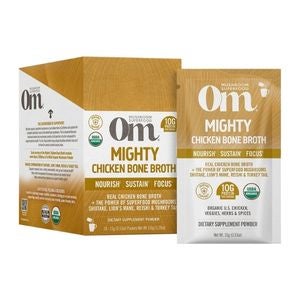
RELATED: Not Paying Attention to Post-Workout Nutrition? It’s Time to Start
Section divider
4. Tart Cherry Juice
Time to pucker up. Tart cherries are jam-packed with antioxidant compounds including polyphenols that are thought to help athletes more efficiently adapt to the rigors of training. This study and this one suggest that consistently consuming tart cherry liquid can help accelerate various aspects of recovery including diminishing the degree of post-training muscle soreness. An investigation in the Journal of the International Society of Sports Nutrition found that athletes who drank tart cherry juice in the days leading up to a Marathon were 50% less likely to develop an upper respiratory tract infection afterward than those who didn’t.
While most of the research has been industry-funded, the science seems pretty solid. Just make sure you’re drinking the tart, Montmorency kind—sorry, those artificially flavored “cherry” drinks or ones watered down with cheap fillers like apple juice aren’t going to bring the same benefits.
And don’t forget that cherry juice offers up those fast-digesting carbs to make it easier to restock your spent energy stores. And don’t be afraid to chug the stuff after a hard-charging workout. A recent study in the Journal of the International Society of Sports Nutrition discovered that consuming a high dose of simple carbs in a short period after exercise is more effective at increasing insulin release and muscle glycogen replenishment than consuming smaller amounts spread over a longer period of time.
One to buy and try: Cheribundi Pure
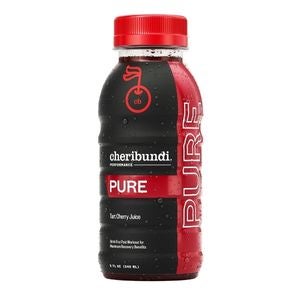
Section divider
5. Kefir
Forget milk, it’s kefir that can do an athlete’s body good. Kefir is a dairy product created when milk is fermented by lactic acid bacteria and yeasts encased in what is known as “kefir grains.” The end result is a tangy drink that’s home to a robust population of beneficial probiotics. These good-for-your-gut critters help properly regulate your digestive system and strengthen the immune system. The British Journal of Sports Medicine reported that probiotics activate immune cells in distance runners, thereby reducing the severity of respiratory illnesses such as colds.
Beyond boosting your microbiome, kefir contains at least 10 grams of high-quality protein in a cup serving. This is an important amount considering research shows that just 9 grams of milk-based protein is enough to stimulate muscle protein anabolism following exercise. Milk-based drinks are also a great way to encourage better rehydration after working up a sweat. The combination of fluid, electrolytes and protein in kefir give it the power to promote optimal fluid recovery. Research shows that for some people kefir can be easier to digest than regular milk. A perk attributed to the bacteria in kefir feasting on and reducing levels of lactose—a natural sugar in dairy that can cause digestive woes.
If you need to go with flavored kefir and the added sweeteners they typically contain, post-workout is a great time to enjoy this as your body is better receptive to the extra sugar for recovery purposes.
And, yes, you can make it the base of your recovery smoothie if you decide to fall back on that.
One to buy and try: Lifeway Organic Grassfed Plain Kefir

RELATED: The 5 Best Food to Eat After A Workout
Published at Fri, 25 Mar 2022 07:53:45 -0700
